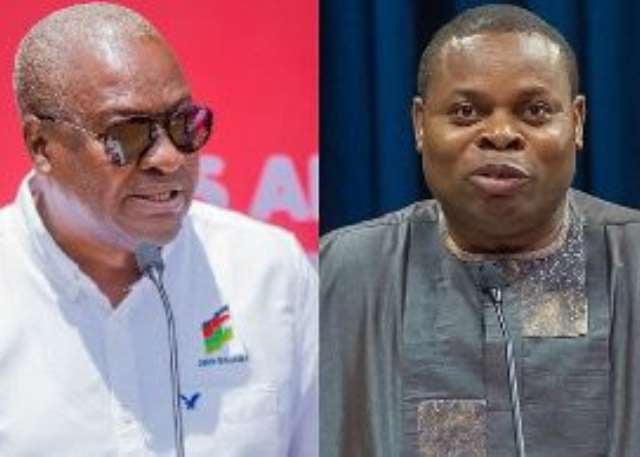The political landscape in Ghana has been stirred by allegations concerning former President John Dramani Mahama’s potential intentions to circumvent constitutional term limits and seek a third presidential term in 2028. These claims, primarily fueled by the New Patriotic Party (NPP) and four other opposition parties, suggest a calculated strategy by Mahama and the National Democratic Congress (NDC) to manipulate the composition of the Supreme Court. The accusers posit that the current government aims to appoint loyalists to the apex court who would then reinterpret Article 66(2) of the Constitution, paving the way for Mahama’s eligibility for another term. This alleged maneuver has raised concerns about potential threats to democratic processes and the rule of law within Ghana.
The core of the accusation revolves around Article 66(2) of the Ghanaian Constitution, which outlines presidential term limits. The opposition parties contend that the NDC intends to pack the Supreme Court with judges sympathetic to their cause, who would then interpret the article in a way that allows Mahama to bypass the existing limitations. This purported strategy raises fundamental questions about the independence of the judiciary and the potential for political manipulation of constitutional interpretations. The opposition parties’ statement explicitly highlights their concern that this maneuver would erode the integrity of the constitutional framework and set a dangerous precedent for future political ambitions.
Franklin Cudjoe, the Founding President of IMANI Africa, a prominent think tank focused on good governance and policy analysis, has vehemently dismissed these allegations. Known for his outspoken advocacy for transparent and accountable governance, Cudjoe characterized the claims as unfounded rumors spread by “wayward town criers.” He unequivocally asserted that Mahama has no intention of pursuing a third term and urged the public to disregard such speculations. Cudjoe’s intervention adds a significant layer to the unfolding narrative, pitting his credibility and reputation against the accusations leveled by the opposition parties.
This controversy unfolds against a backdrop of complex political dynamics in Ghana. The NPP, currently in power, and the NDC, the leading opposition party, have a history of intense political rivalry. This rivalry has often manifested in accusations and counter-accusations, creating a climate of heightened political tension. The current allegations surrounding Mahama’s potential third-term ambitions add another layer to this already complex interplay, potentially exacerbating existing political divisions and fostering public distrust.
The implications of these allegations extend beyond the immediate political maneuvering. They raise critical questions about the integrity of Ghana’s democratic institutions and the potential for political interference in the judiciary. If the accusations prove true, they would represent a significant erosion of democratic norms and could set a dangerous precedent for future leaders seeking to circumvent constitutional limitations. Conversely, if the claims are unfounded, they represent an attempt to discredit a political opponent and undermine public trust in the political process.
The unfolding situation warrants close scrutiny and rigorous investigation to determine the veracity of the claims. A transparent and impartial inquiry into the government’s judicial appointments and any potential attempts to influence the interpretation of Article 66(2) is essential to preserving public trust in the judiciary and upholding the rule of law. The future of Ghana’s democratic landscape hinges on a commitment to transparency, accountability, and respect for constitutional principles. The resolution of this controversy will undoubtedly shape the political discourse and potentially influence the trajectory of Ghana’s democratic development.














